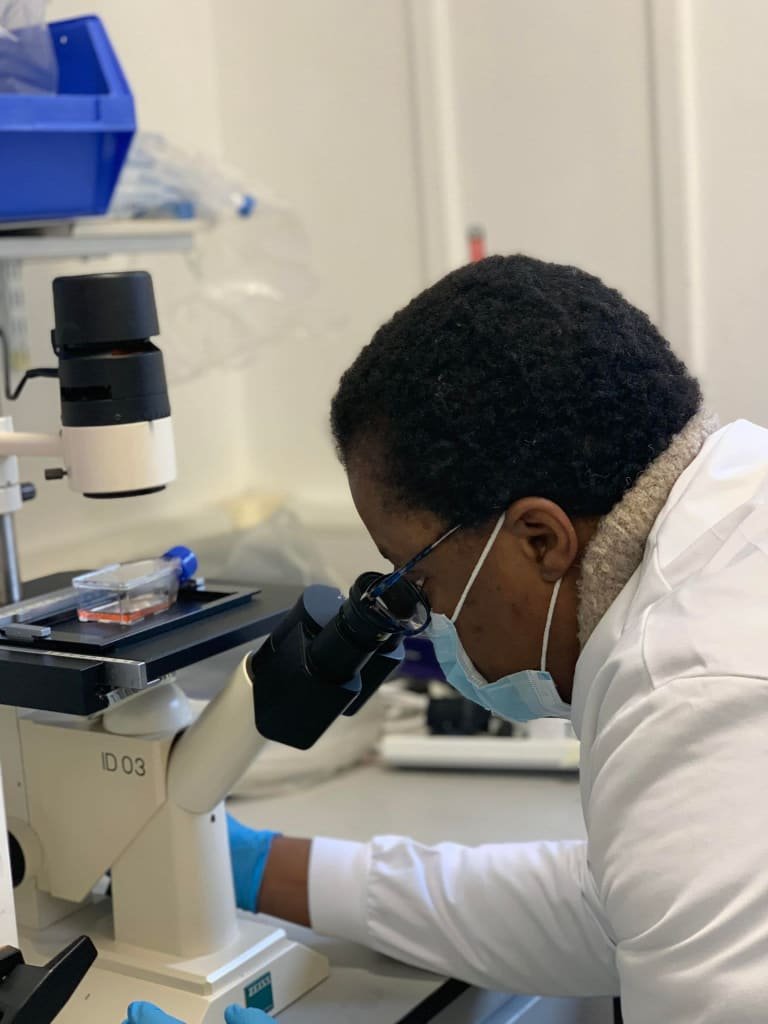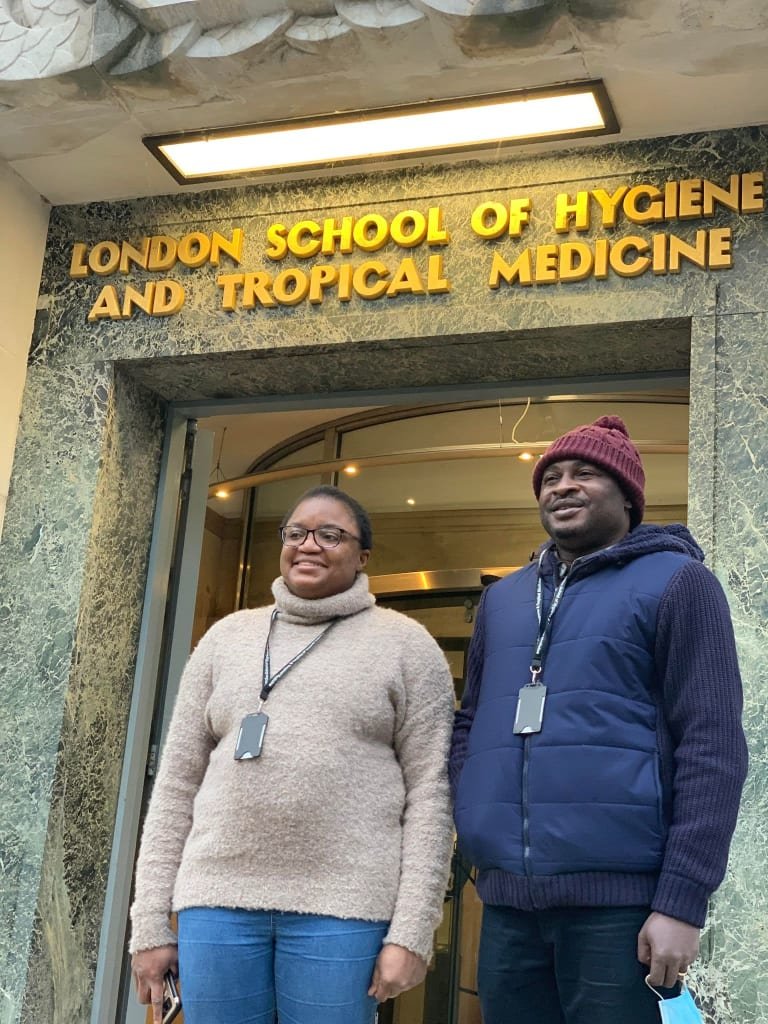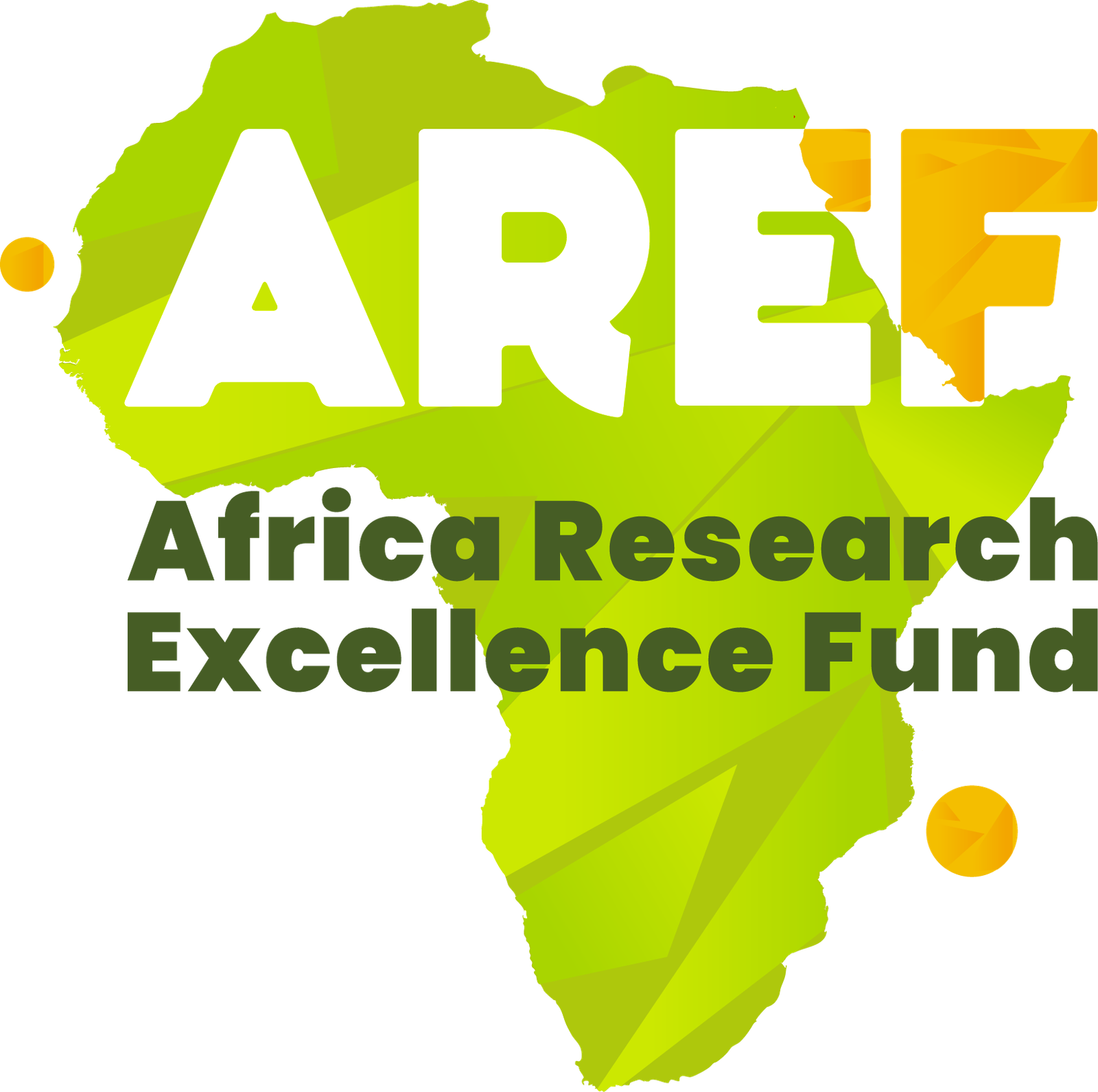Malaria is a life-threatening disease caused by Plasmodium parasites, spread through bites from Anopheles mosquitos. Despite being both preventable and curable, there were an estimated 241 million cases of malaria worldwide in 2020 and 627,000 deaths, of which 95% were in the Africa region*.
Tactics in the fight against malaria include vector control, preventative medicines, vaccinations, and early diagnosis and treatment. However, there are major challenges in implementing these strategies in Africa, including the increasing spread of drug resistance in Plasmodium parasites, and a lack of malaria culturing facilities in African research institutions.
We visited two of our 2021 Research Development Fellows, Dr Linda Anagu and Dr Olusola Ajibaye, to hear how their work is hoping to overcome these challenges in malaria elimination in Africa.
Understanding the host-parasite interaction in malaria infections

Dr Anagu is an academic pharmacist from Nnamdi Azikiwe University in Nigeria, currently undertaking her Research Development Fellowship at the London School of Hygiene & Tropical Medicine (LSHTM) in the UK. She is interested in the epigenetics of the malaria parasite, Plasmodium falciparum (the most prevalent malaria parasite on the African continent) and how changes in gene expression can influence disease outcome.
Supported by her sponsor Dr Sam Wassmer, the Co-Director of the LSHTM Malaria Centre, Dr Anagu is developing the skills and protocols required to explore changes in gene expression in P. falciparum, including advanced cell culture techniques.
These techniques include the ex-vivo culture of the P. falciparum, requiring sophisticated incubation equipment with a careful mix of atmospheric gases to ensure viability of the samples. Despite this technique being an essential component to malaria research, there are currently no P. falciparum incubation facilities in the whole of Nigeria, making experimental science very difficult.
Following her fellowship, Dr Anagu will apply the skills she has acquired to her home institution and apply for more funding to obtain the necessary equipment needed for in-country culture of P. falciparum in Nigeria.
Dr Anagu said: “These fellowships help talented African scientists to solve challenges affecting Africans, ensuring we can apply for competitive international funding. It is helping research to flourish in Africa, ensuring Africans are solving problems that only they really understand.”
Tackling drug resistance in the malaria parasite

Dr Ajibaye, a biochemist from the Nigerian Institute Medical Research, is undertaking his Research Development Fellowship at MRC Unit The Gambia at LSHTM (MRCG-LSHTM), and was visiting LSHTM in the UK for a training course in DNA sequencing. His key research interest is to uncover the mechanisms underlying antimalarial drug resistance in the P. falciparum parasite.
During his placement, Dr Ajibaye is developing advanced research skills in parasite culture, data analysis techniques, and DNA- and RNA- sequencing. These new techniques allow Dr Ajibaye to process a large number of samples in a short period of time, producing high quality, reliable data.
Upon acquiring these new skills and advanced research techniques, he aims to apply for grants and further funding to make this technology accessible at his home institution.
Dr Ajibaye said: “To donors to AREF I would say a huge thank you. We are blessed by these opportunities for career progression, career satisfaction, and it is an incredible opportunity to fulfil our potential and put our skills to good use to ultimately save lives.”
Collaborative research partnerships
Alongside acquiring advanced research skills, our Research Development Fellowships are an opportunity to develop highly effective mentoring relationships, grow potential collaborations and network internationally.

While at LSHTM, Dr Anagu and Dr Ajibaye met in the research lab and are benefitting from new connections and collaborations. They are working on new publications and research ideas with international colleagues as well as sharing ideas on how to establish in-country cultures of malaria parasites.
Dr Ajibaye said: “A highlight of my AREF fellowship has been making connections with like-minded scientists from around the world to form new collaborations and support each other’s work.”
We look forward to hearing future outcomes from their malaria research and wish them great success in the completion of their fellowships.
Find out more about our Research Development Fellowships.
*World Health Organisation, 2020: https://www.who.int/news-room/fact-sheets/detail/malaria


